Egg labels are confusing. If you've ever thought, “what are the best eggs I can buy?” and not had a clear answer, this article is for you. There are two dozen types of eggs at every grocery store, of which some are $2.00 and some are $9.99? So, what egg should you buy?! I figured I’d write this guide to help other folks struggling with this as well.
If you're impatient: I either buy eggs from the local farmers' markets, or the Vital Farms pasture-raised eggs. However, the best eggs to buy are the ones that you can afford and can align behind the values for! So read on to find out more about the six key traits that are important to understand in your eggs.
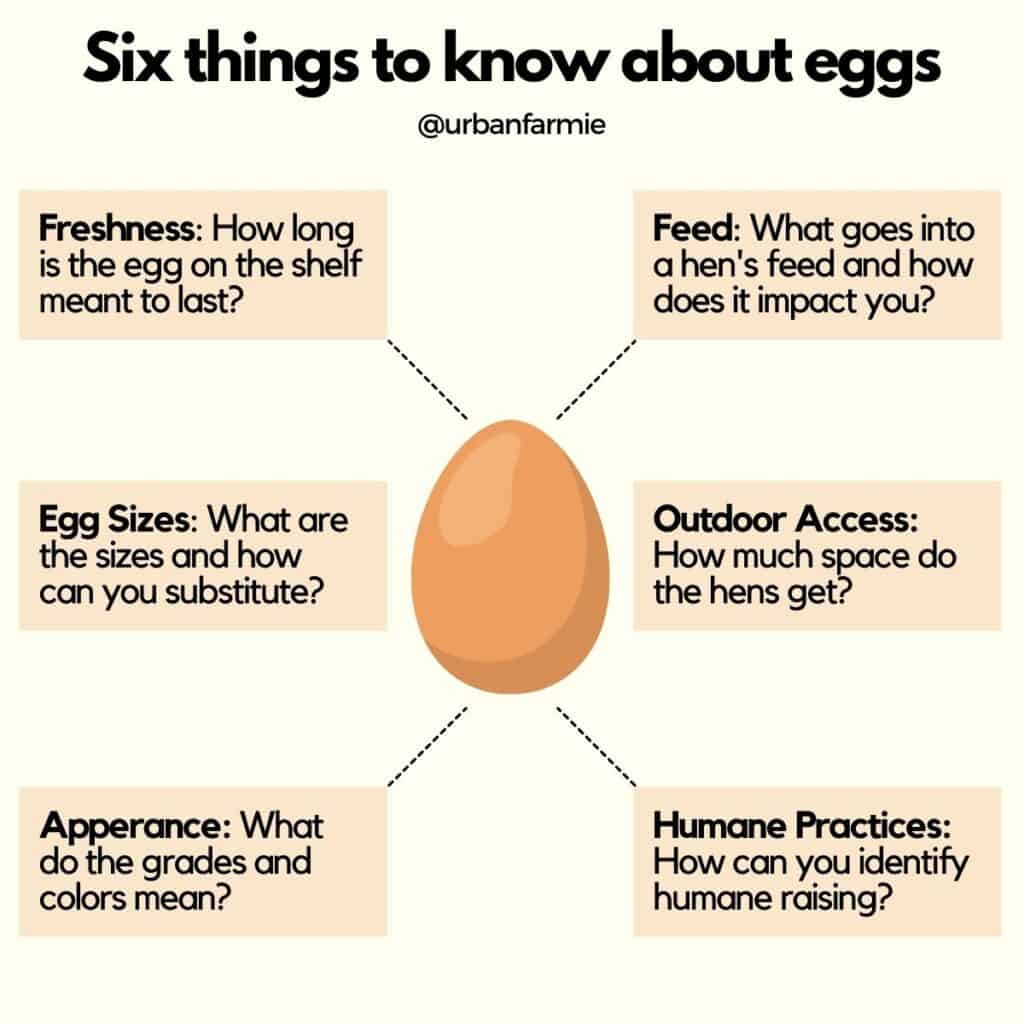
Date: How Long Do Fresh Eggs Last
You can determine freshness of eggs through the "packed on" date or by dunking the eggs in water. Eggs stored in a carton in the fridge will last four weeks from packed date and roughly 1-2 weeks after the "sell by" date. If eggs smell funky, throw them out even if the expiration date suggests otherwise.
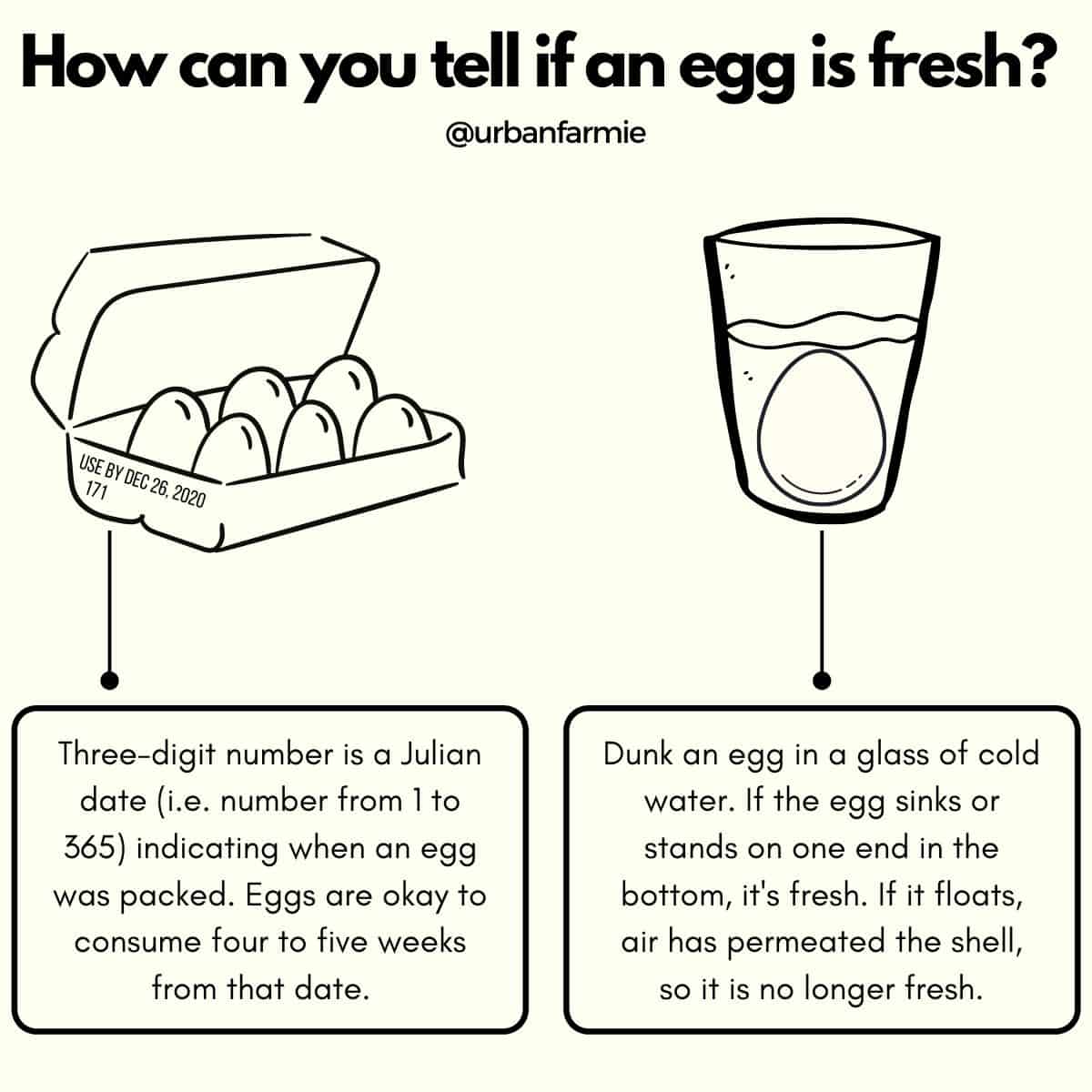
Egg Sizes
Egg size is measured as net weight per dozen, not dimensions. So, some eggs are sized equally even when they look different. Large eggs are the standard in most recipes!
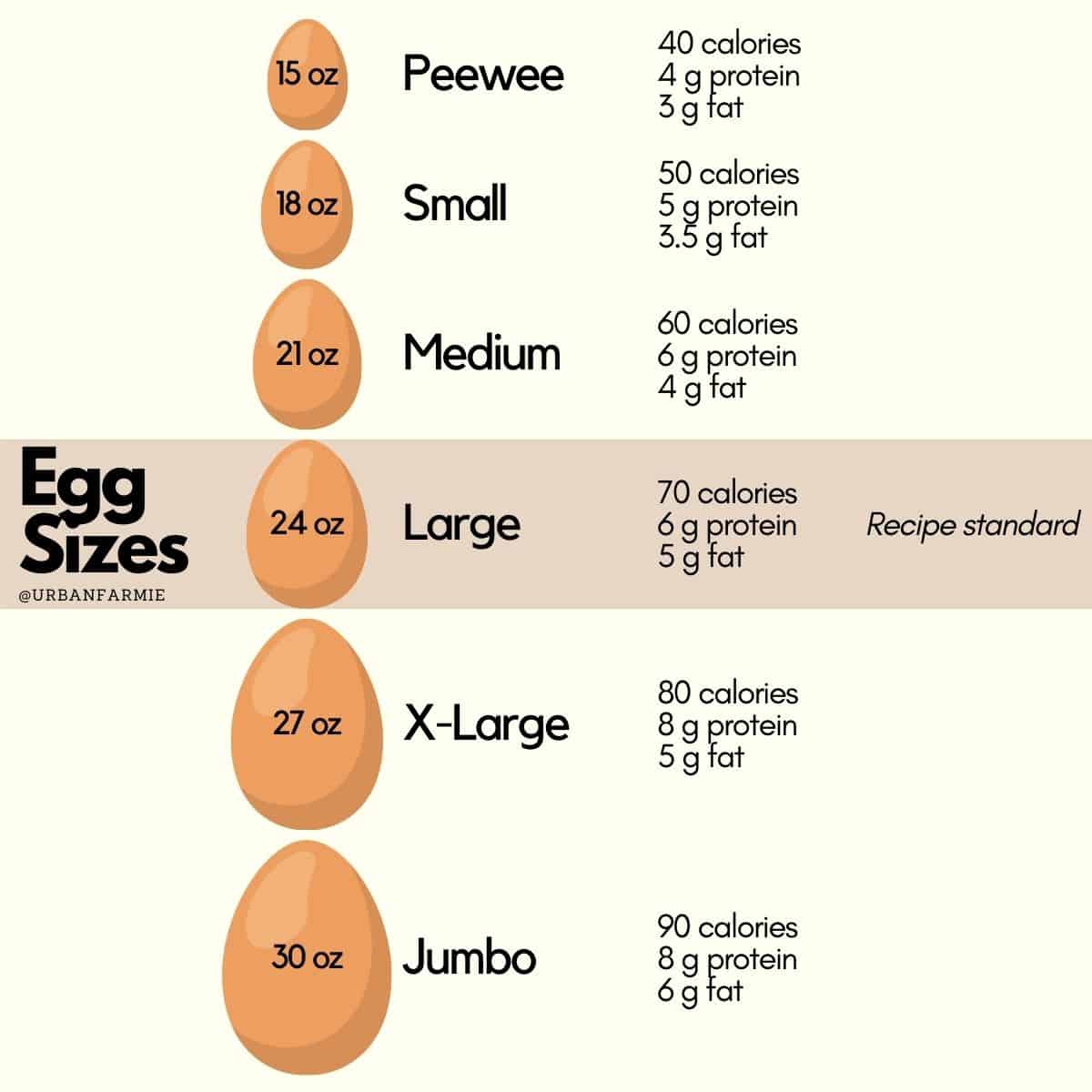
Egg Size Comparison
If you're wondering how many small eggs equal a large egg, or how many jumbo eggs equal three large eggs, use the size comparison chart below to help your decision! Thanks to the Incredible Egg for the inspiration!
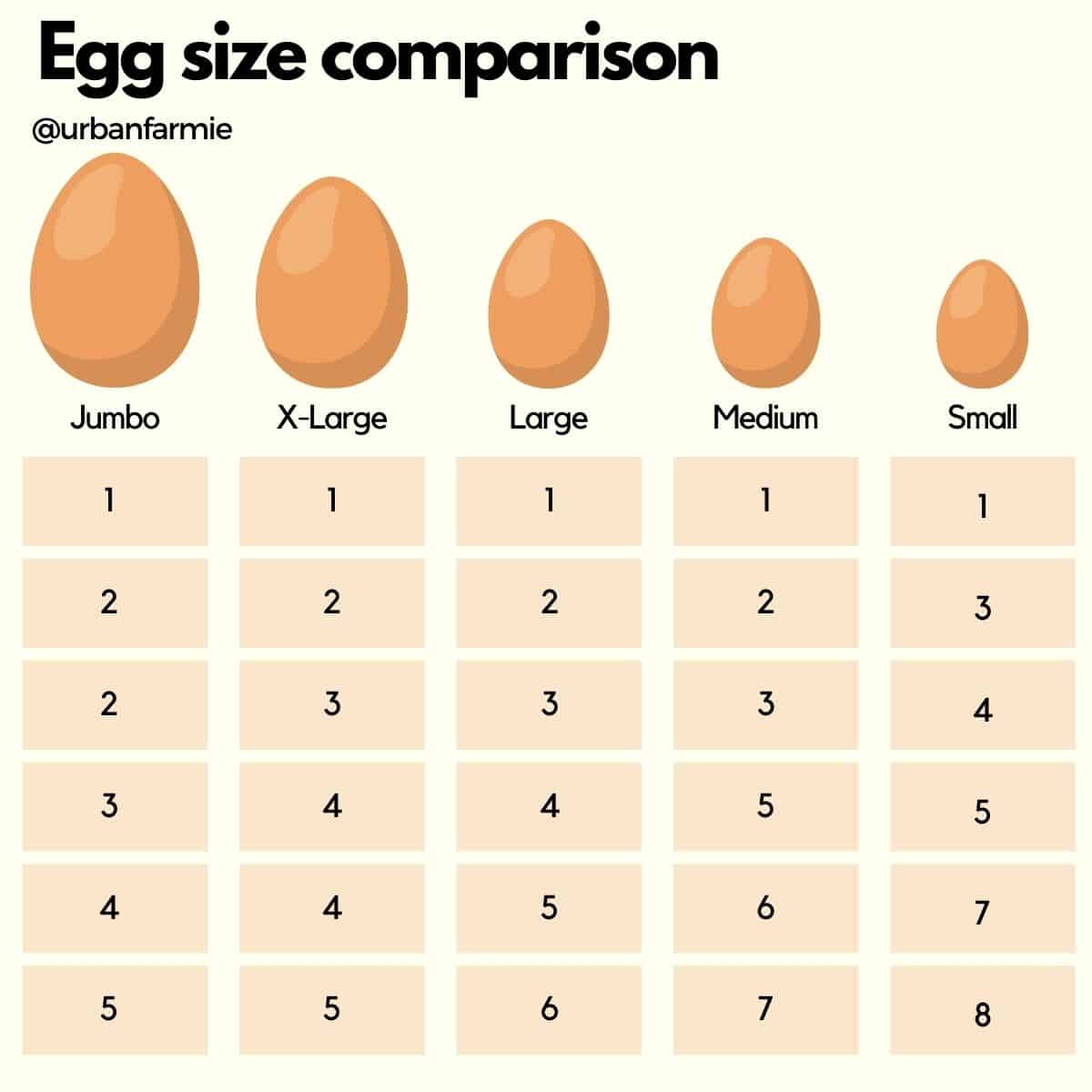
Appearance: Grades & Color Egg Labels
When it comes to egg grades, the ratings (e.g. A or AA) indicate whether your eggs are cracked or misshapen. However, it is not a safety standard. An AA egg simply has no visible defects (think: blood spots, meat spots, embryo chicks or whatever else). So, any egg you pick up from a supermarket? It’s likely safe to eat.
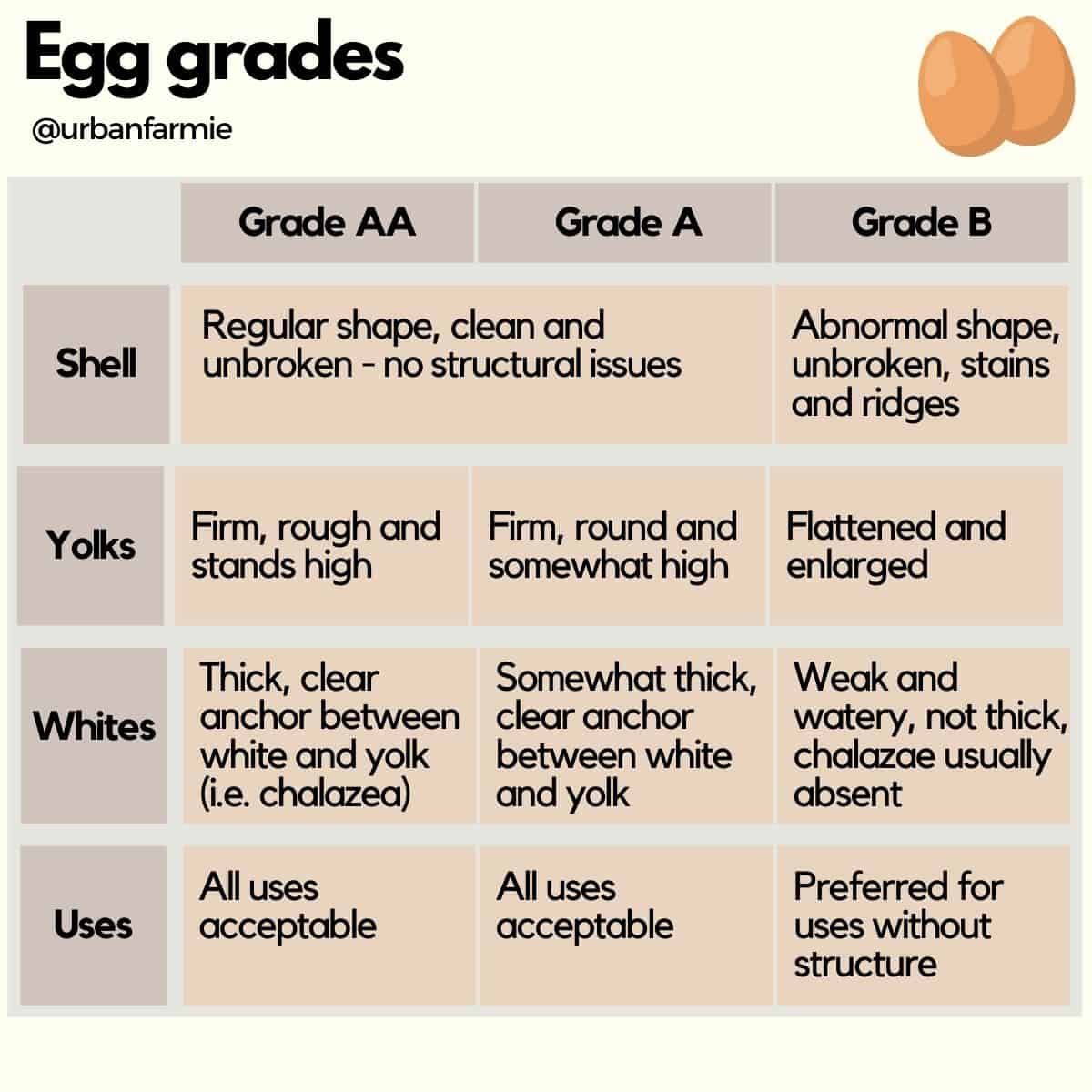
With respect to egg color, according to Michigan State University Extension, egg color has everything to do with the genetics of the hen laying the egg. Apparently, ear lobes are a good indication of egg color - those with white ear lobes produce white eggs! Therefore, the egg color has zero nutritional or taste difference!
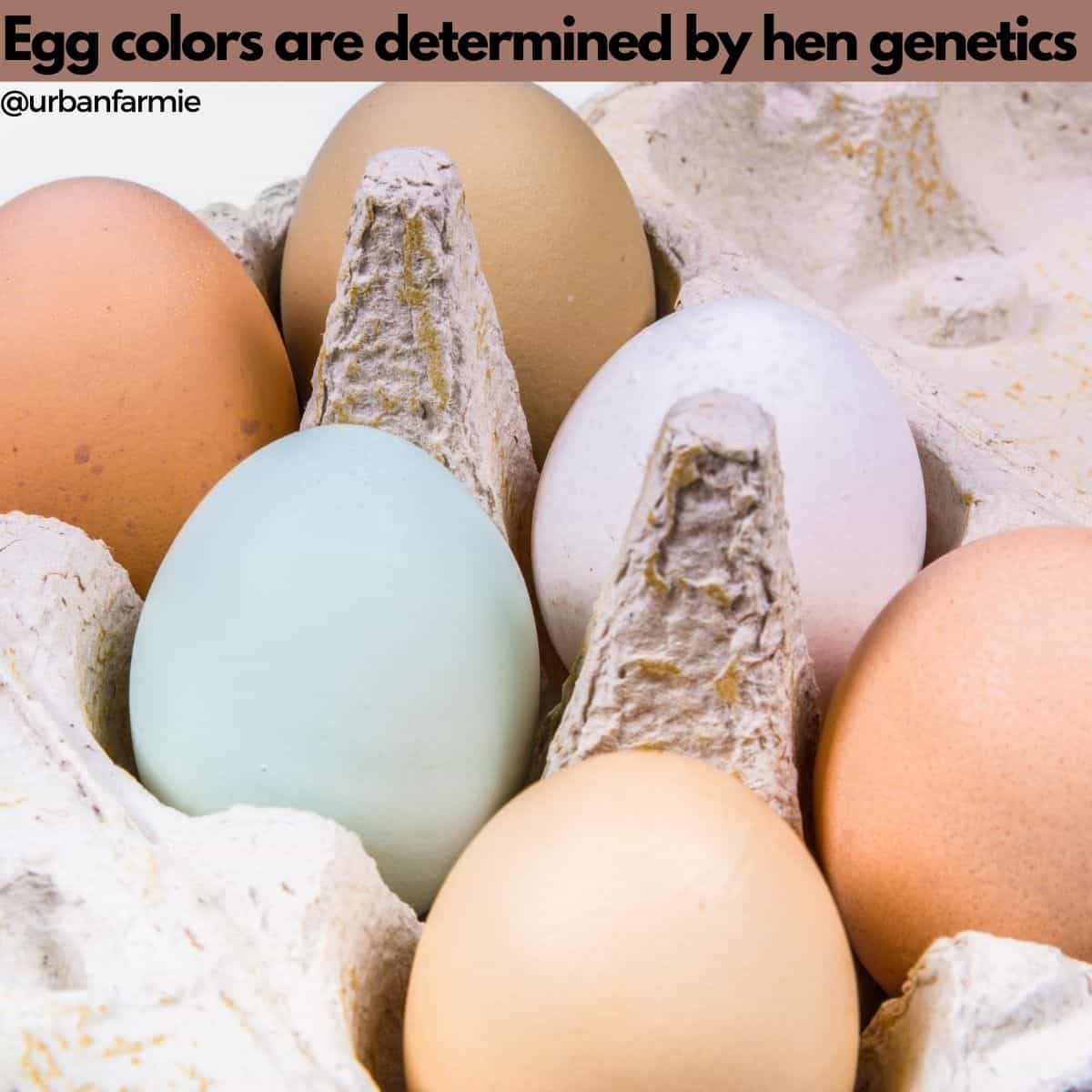
Feed Labels
There are many types of labels used for hen feed, but I've described the most common ones below. These range from highly natural to more processed feeds.
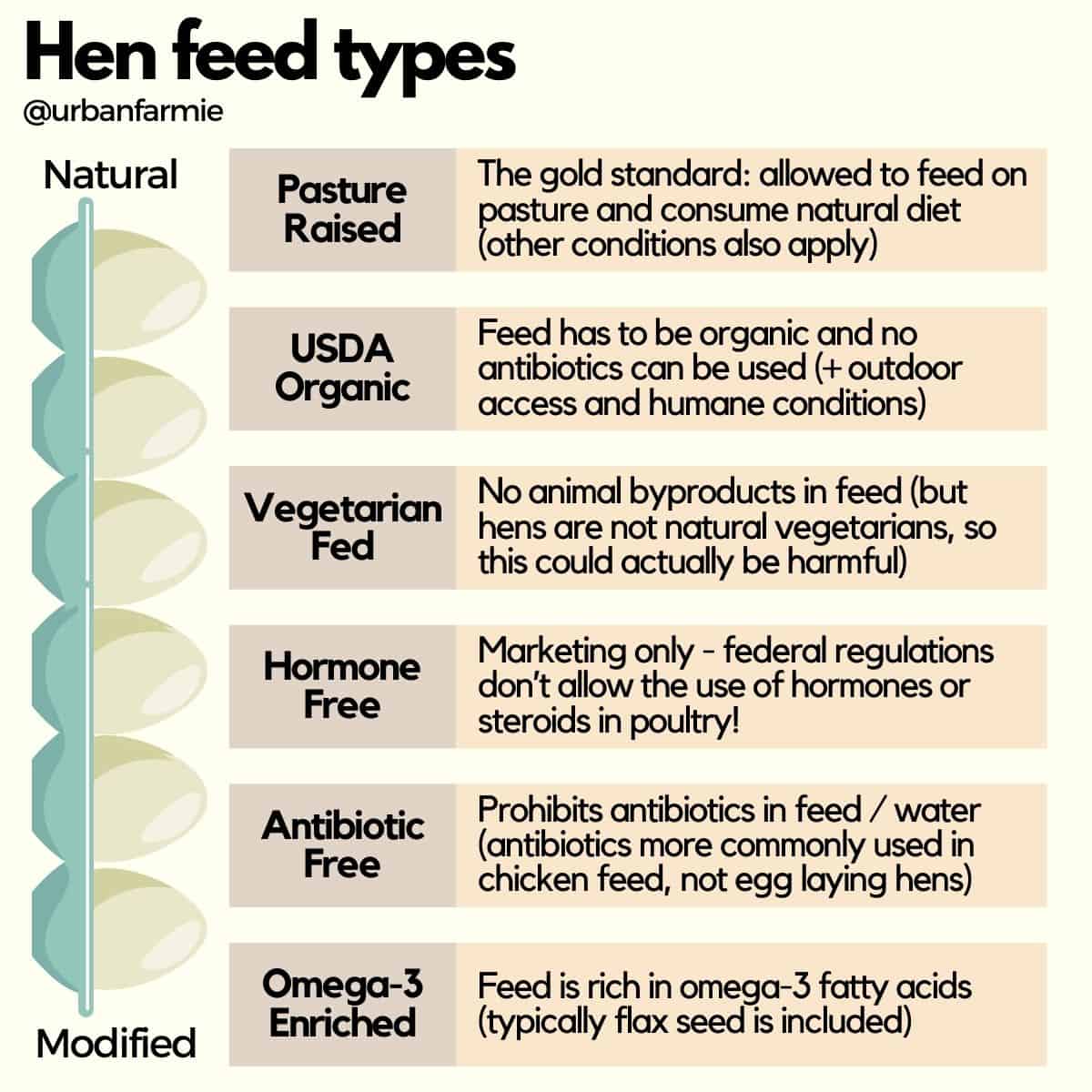
Antibiotic-free or "no antibiotics administered" means hens were not given antibiotics, while "hormone free" means there were no hormones administered. However, antibiotics are more common in chicken feed and not used as much for egg-laying hens. Plus, federal regulations don’t allow the use of hormones or steroids in poultry. So, these two labels are a bit of a catch-all for most eggs and cartons without these labels are likely fine as well.
But “vegetarian-fed hens” — that’s the interesting one. Hens aren’t natural vegetarians, but this label means your hen’s diet didn’t contain animal byproducts.
Outdoor Access and Confinement Labels
This one is probably the most contentious label, but before we get into “cage free” “free range” and “pasture raised” (three types of outdoor access terms) let's take a moment to understand what the status quo, an “industrially raised” hen, gets.
Traditional egg-laying hen CAFOs (Concentrated Animal Feeding Operation), the USDA requires 67 square inches of space: that’s slightly less than a regular sheet of paper. Your industrial hens don’t even have the space to turn their head, let alone lay eggs in peace, which means there’s a likelihood of higher cortisol (the stress-causing hormone) in their systems. But that’s just the cheapest carton of eggs … what do the other labels mean?
Cage-free, free-range and pasture-raised, the three most commonly used labels, are all voluntary labels accepted by the Agricultural Marketing Service (AMS)— the board that certifies your food products. AMS personnel visit each egg production site twice per year to verify these practices.

Cage free vs. free range eggs
Cage-free means hens can roam, instead of being held in battery cages. This doesn’t mean guarantee outdoor access, nor does it specify the actual quantity of space. Free-range is a bit better — based on USDA recommendations, they’re cage-free hens with access to an outdoor area. There are no “diet” implications for either label.
Pasture raised eggs
Pasture-raised hens, on the other hand, usually come from smaller farms or companies. And while there are no set standards, these hens usually live outdoors and eat a more “natural” diet (think seeds and bugs).
And then there’s organic. Any carton carrying the USDA Organic seal should come from free-range hens raised on organic feed with access to the outdoors and sunlight. So, while cage-free and free-range (or organic) eggs are better than factory-farmed, pasture-raised eggs are better than both.
Humane Practices
There are three practices that many industrial egg producers still use:
- Beak cutting: to ensure birds don’t peck at each other in confined spaces
- Forced molting: where older hens are starved to get one last round of eggs
- Male culling: male chicks are literally thrown into meat grinders alive (welp).
So, wherever possible, look for humane certifications on your egg labels. This can come from several third-party organizations, but watch out for “Certified Humane” or “Animal Welfare Approved” in particular.
Resources to help find the best eggs
Hopefully, after reading this guide you're feeling confident in understanding what the different terms mean and why you may or may not want to get eggs with those labels. So I'll end this guide with some links to other detailed resources that might help further.
- Cornucopia Institute's Egg Scorecard: Detailed scorecard that rates most major egg producers in the country on various dimensions mentioned in this guide
- Egg Safety Center: Detailed resource center outlining safety practices, government regulations, as well as tips and tricks for handling, storing and eating eggs
- Eggs, Nutrition Source (Harvard): Detailed resource on the health benefits and issues from consumption of eggs
If you enjoyed reading this, and you're looking for my favorite egg dishes, check out the following delicious, tested recipes!


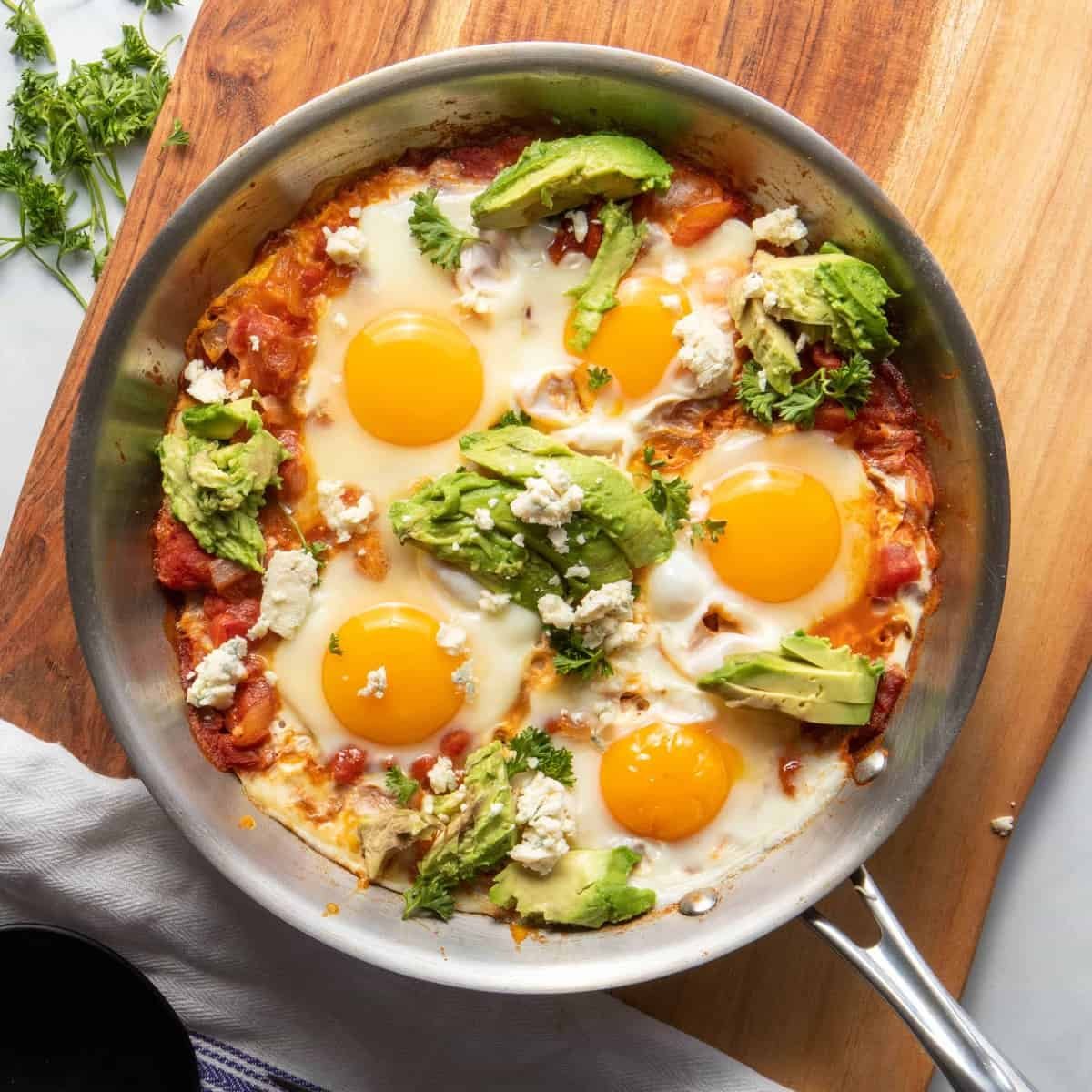


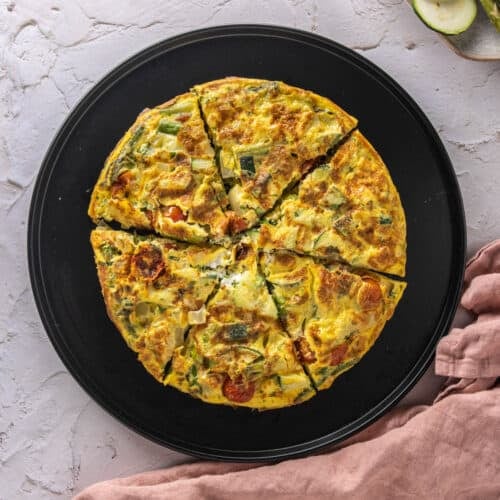








Do you think these "humane" certifications are kept in check throughout the year? The labels are corrupt and it isn't there for the chickens, the labels are there to make us feel less guilty about buying the eggs. What about the genetic mutations, hormones and antibiotics pumped into them, or the living conditions they are in? It doesn't change the fact that the chickens all get sent to the slaughterhouse at the end of their life when they are considered waste and 'unusable'. It would be easier to not eat the eggs in the first place.
Thanks for the note, Jordana - while there are many issues overall with mass production, and perhaps refraining from eggs is the safest way to avoid those issues, it's not always possible for everyone. So, my post tries to help people transition to a more sustainable / humane source by decoding egg labels.
Such a great post about eggs. We try to use the Certified Humane eggs. I tend to find that the eggs are really a better quality and you can tell by the color and strength of the yolk. On some of the packages, you can trace it back to the farm where it is raised.
Yes, more expensive, but I like doing my part to help making happier farmers and chickens.
I definitely agree with all of that! 🙂 And I also feel like you can tell the difference!
This is such great info, I didn't know that there were vegetarian-fed hens, I never saw it on a label, but I live in the UK.
Okay, this is perfect. There are so many eggs out there, and I often feels overwhelmed when trying to buy eggs. So thank you so much for this!! 🙂
What a great article for breaking down the labeling for the different types of eggs! So informative and I love the graphics.
So much good information here! I never thought about these things before. Definitely useful info about eggs. Wonderful job!
This is such great information. I never new any of this.